Klappe
Director, Producer: Jürgen Brüning
Year: 2022
Country: Germany
Running time: 64 Minutes,
Languages: German/English/Spanish
Subtitles: English
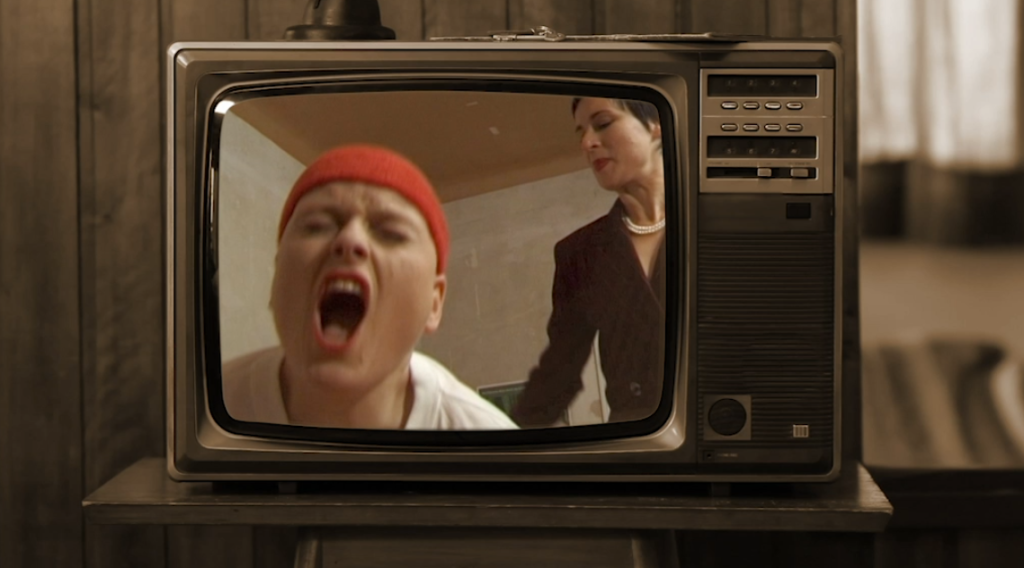
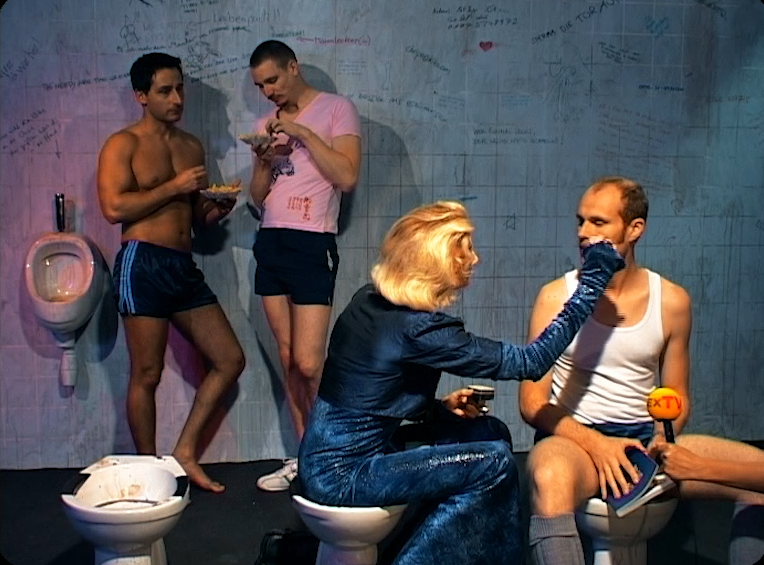
As in one of those snuff porn movies that depicts gruesome surgical procedures, Jürgen Brüning invites us to creep into his body and catch a glimpse of what is inside his famously criminal heart: a sex-ridden public toilet, a Tearoom, or (in German) a Klappe! A dirty place where many characters will take turns not only to shock, insult and irritate us, but also to shamelessly introduce a riotous debate about several wounds regarding dissident identities and contemporary culture.
“Fuck copyright laws!” is the war-cry with which Brüning and his editor, Jörn Hartmann, defy society’s most cherished values, meandering not only through samples from his own work, but pop references from around the world as well, and a set of rousing songs by Claudia Fierke, Stefan Kuschner and Matthias Köninger, in a rowdy mix resembling an unlikely uproarious underground TV channel midnight show that could only be possible in a better world, a world swayed by romantic revolutionaries and artists.
You may say many things about Brüning’s Klappe that could scare the most temperate dispositions, that its punk attitude is anti-religious, for instance, or anti-authoritarian at best, and somehow a bit anti-everything indeed, but it’s also undeniable its core of deep compassion, as opposed to the alarming dehumanization growing amidst the queer community, a frame of mind best resumed with a cherubic choir of heartbroken porn stars inviting us to sing enthusiastically: Long Live Gay Solidarity!
Goyo Anchou, May 2025
Endless
Director, Producer: Wojciech Puś
Year: 2024
Country: Poland
Running time: 110 Minutes
Languages: polish, English, German, Ukrainian, French
Subtitles: English
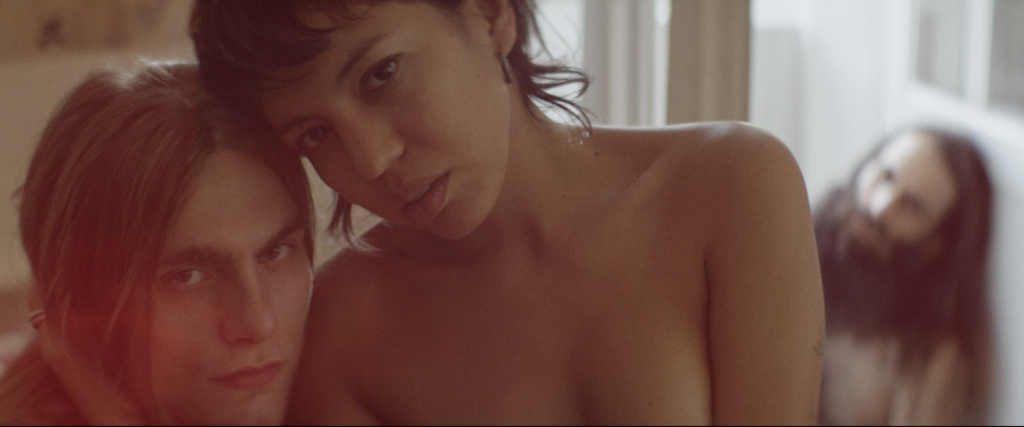
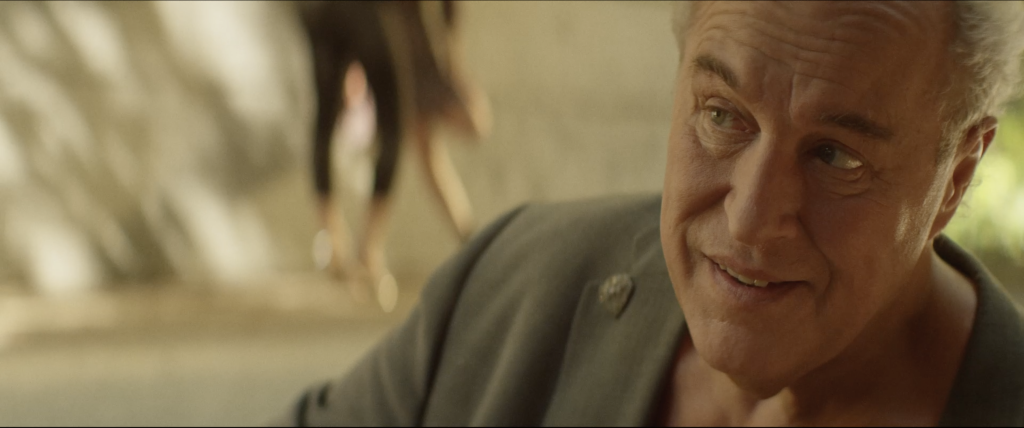
Endless “forges a new, radical cinematic language”* rooted in New Wave’s storytelling, dark irony and labyrinthine mystery, bursting with queer and transfeminist diaristic echoes.
When lonely, searching for their identity, nonbinary/trans X start a new, complicated affair with transgender Frank, they are drawn into an uncanny game of feelings, which puts their emotions to the test. Relationship with the mysterious M, a collector of beauty and youth, seems like a salvation and the possibility of new beginnings. However opening to a new life imitating art has its price. Is a transition to the other side worth it?
The film builds a visual and conceptual bridge between classic movie narration and uncanny poetic strategies adapted from different visual art forms and mediums: performance, installation, VR/XR and AI engines. In that sense “Endless” dares to reach beyond the known horizons, offering the viewer to look through the eyes of a main charachter trapped in the monumental intrigue of their own desires, longings and irresolutions. “Endless” redefines the spectator’s role of a passive “content consumer” and introduces the possibility to engage audience’s senses through the mystery of becoming “the other”: made of the shattered and forgotten mirror splinters.
The New Jews
Director: Amir Ovadia Steklov
Producers: Amir Ovadia Steklov, Jürgen Brüning
Year: 2025
Country: Germany
Running time: 80 minutes
Languages: Hebrew, English, German
Subtitles: English
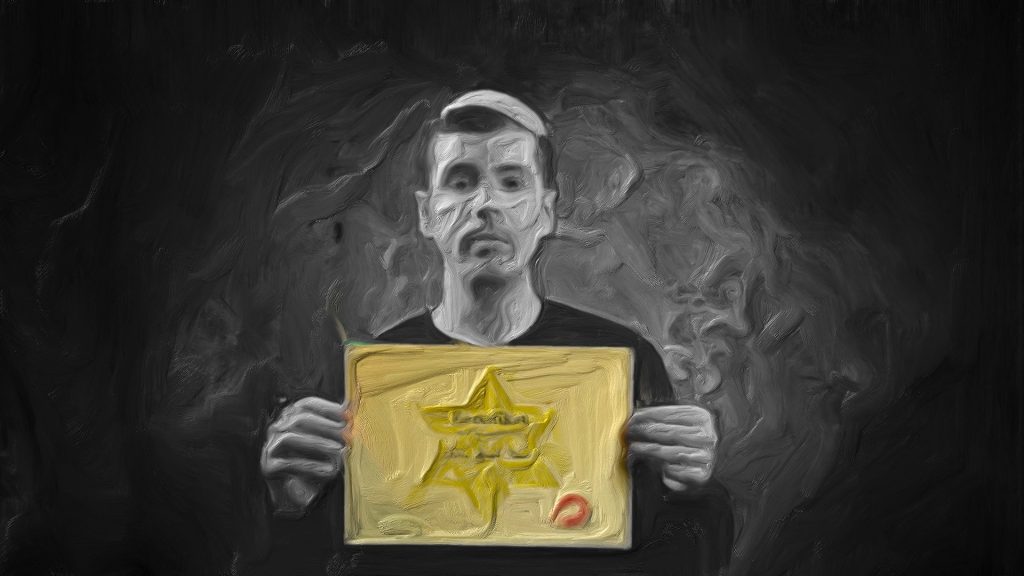
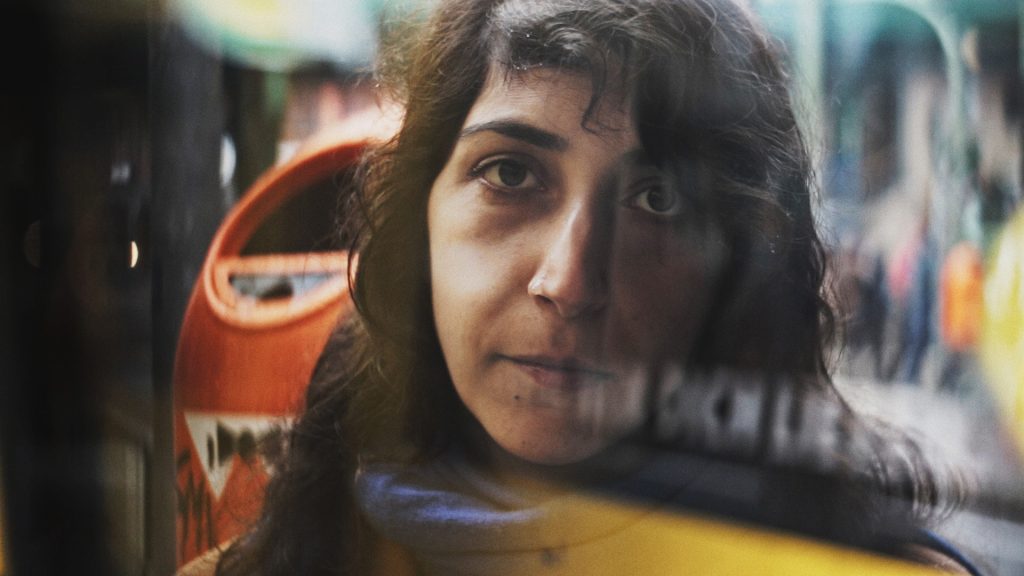
A decade in the making, The New Jews is a bold and provocative documentary following a group of non-Zionist Israeli Jews who flee the rise of right-wing nationalism and relentless violence. Seeking refuge in Berlin, they become entangled in the city’s layered history, only to find that their search for belonging leads them into a web of sexual, social, and political contradictions, complicated by the fetishization of Jews.
Visually witty and partially animated, the film centers around filmmakers Amir and Inés on a hunt for intimacy and sexual adventure in their new home. In a darkly humorous twist, their encounters—through dating apps and sex calls—expose the lingering shadow of Nazism, Holocaust guilt, and a disturbing objectification of their Jewish bodies.
Other participants are interrogated in a dimly lit room, confessing their conflicted relationships with Israel and the bittersweet experience of making Berlin their new home. Their testimonies reveal that the violence that once shaped their rebellious Jewish identity in Israel continues to haunt them, now appearing in a different guise in multicultural Berlin.
In a country eager to love its Jews—but only the ‘right’ kind—the film unfolds as both an ironic reminder of the world the participants sought to escape and a wake-up call to the one they now face.
Homophobia!
Director, Producers: Goyo Anchou
Year: 2024
Country: Argentina
Running time: 72 minutes
Languages: Spanish
Subtitles: English
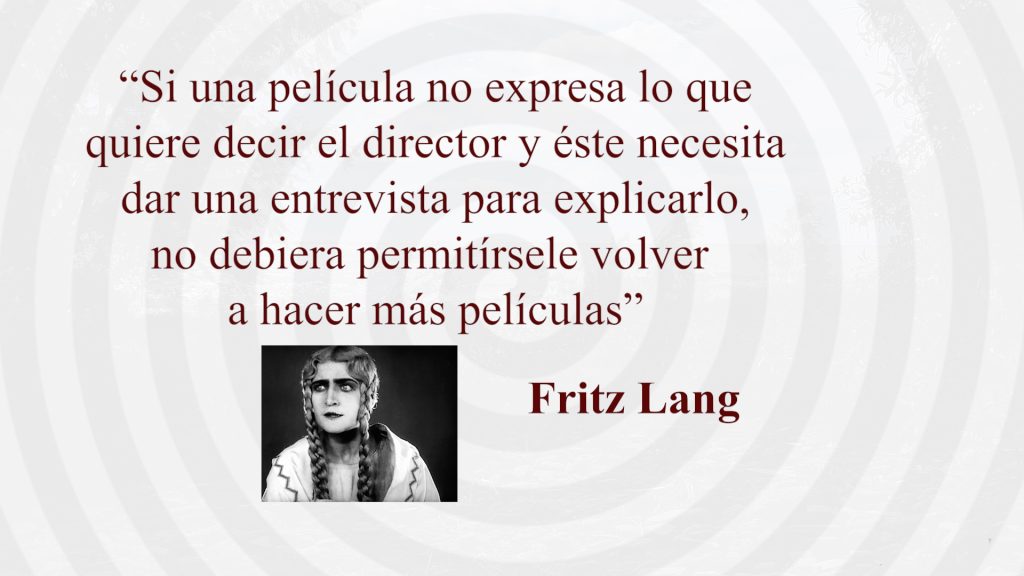
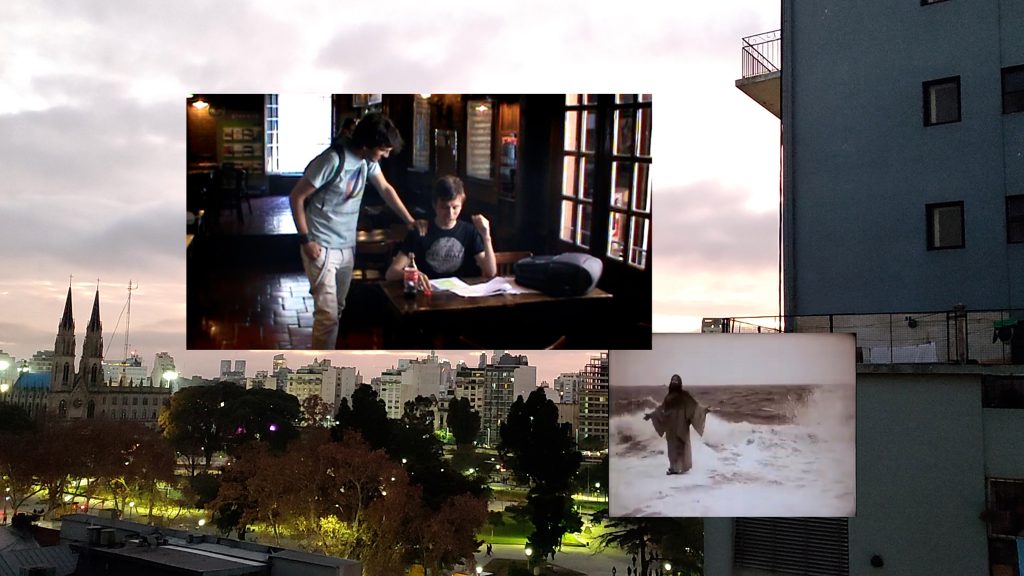
It’s fascinating how much of a fool an insecure man, cornered and touched by his pride, can be. Throwing himself at the feet of his beloved girlfriend, crying for forgiveness, getting angry over a supposed betrayal, feeling like Christ on the cross, slamming a door, wanting to kill himself and then wanting to kill everyone else, are just some of his outbursts. The repertoire of the pathetic man is endless. And the protagonist of “Homophobia!” follows this path to the fullest, allergic to shame. So thoroughly, that he plans a possible solution: having sex with a gay guy from college and then beating him up, or making a porn movie with him. That’ll be decided later. Because they, the gays, according to his latent homophobia, are there for that.
Between pathos and repression, a thesis emerges: the frustration of being closeted is a double-edged sword that always ends up cutting the person who wears it. The logline “They’re all faggots…” on the poster for “Homophobia!” sheds light on this issue that hovers throughout the film. The idea of transparency is everywhere in Anchou. A concept sometimes associated with comfort, laziness, or a lack of flair for disguise. But the avant-garde (the aesthetic and political avant-garde that obsesses the director) fails if it dissolves into total opacity. And Anchou, a rabid and libidinous artisan of the margins, is very clear about this: breaking away from standards implies proudly and head-on embracing one’s own dissidence.
Text originally published in the CONTRACAMPO catalogue. Tomás Guarnaccia / Copyleft 2024
Santikhiri Sonata
Director: Thunska Pansittivorakul
Producers: Thunska Pansittivorakul, Jürgen Brüning
Year: 2019
Country: Thailand, Germany
Running time: 75′
Languages: Thai
Subtitles: English
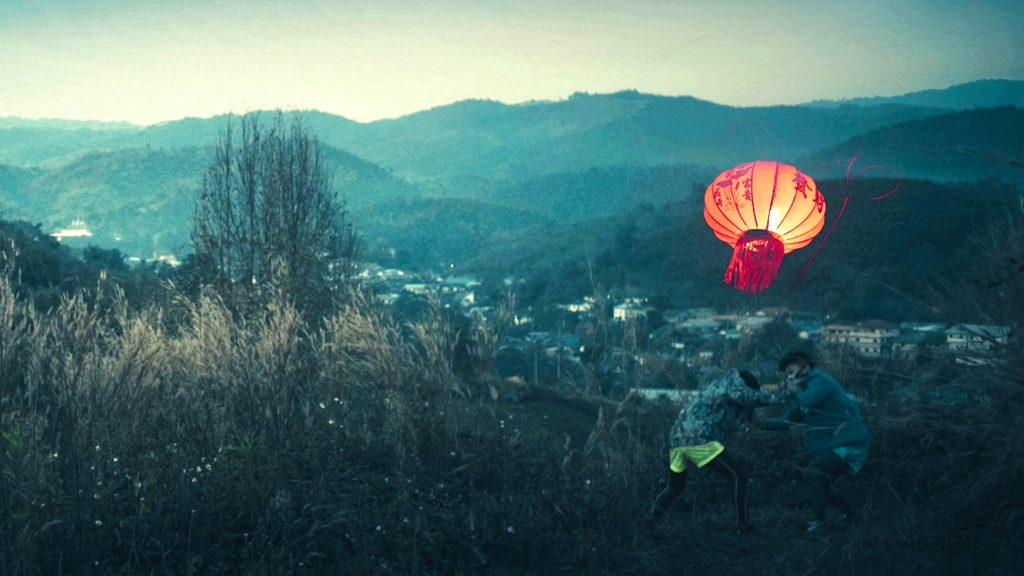
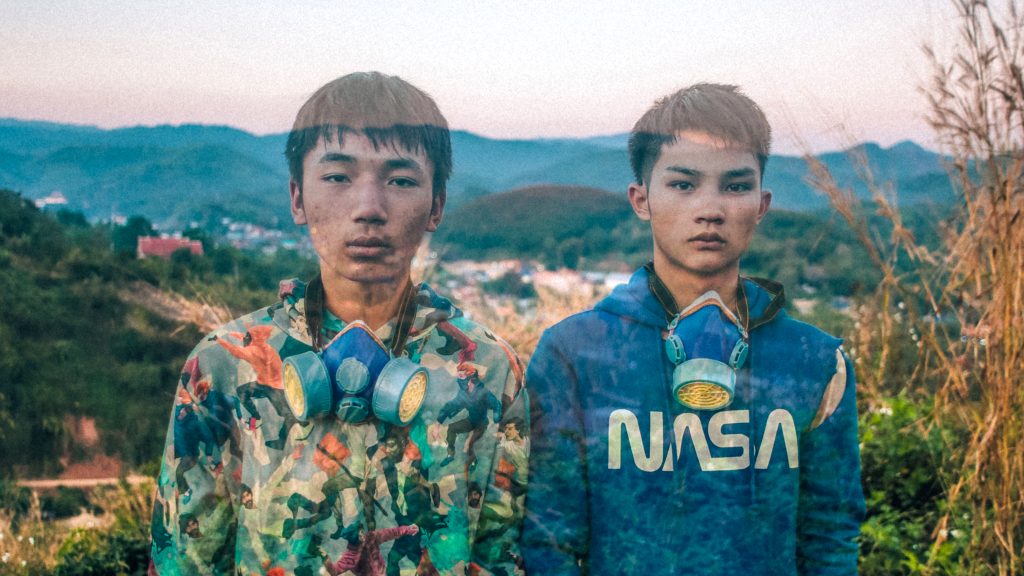
This hybrid film was shot in an area called Santikhiri, which means ‘the Hill of Peace’, the name granted by the Kingdom of Thailand in 1978 in order to create a new image for this land. Located in the northernmost part of the country, the are is now a significant tourist destination due to its mix of cultures between Thai and Chinese, despite a CIA report in 1971 that the area was one of the biggest centers of heroin production in Southeast Asia. However, after General Prem’s government came to power in the 80s, everything – drugs, communism, corruption, human trafficking, and stateless persons – in this area was entirely suppressed to foster order and peace. But, in reality, can this place be as peaceful as its new name? Since that time, what has been its continued impact up to this very day and beyond? These are the questions that the film poses.
Director’s note
This film is a Sonata in three movements, indicating the present, past, and future. Forty years ago, when I was a kid, the TV was filled with propaganda, instilling in people’s minds that the military government protected the country from different threats, while simultaneously emphasizing political violence in foreign countries: the Gwangju Uprising in 1980 in South Korea, the 8888 Uprising in 1988 in Myanmar, and even the Tiananmen Square Protests of 1989 in China. Coverage of these was used to create the illusion that Thailand was a peaceful and developing country. However, forty years have now passed, and while other countries are developing rapidly, Thailand remains sluggish. The unwavering illusion and pride in the country’s status of never having been colonized have successfully shaped our blind nationalism. Just like Napoleon once said: “What is history, but a fable agreed upon?”
Doclisboa International Film Festival
2019 | Winner: City of Lisbon Award for Best International Competition Film
JULIA
Director: J.Jackie Baier
Producers: Gamma Bak, J.Jackie Baier, Dagne Vildziunaitė
Year: 2013
Country: Germany
Running time: 88′
Languages: German
Subtitles: English
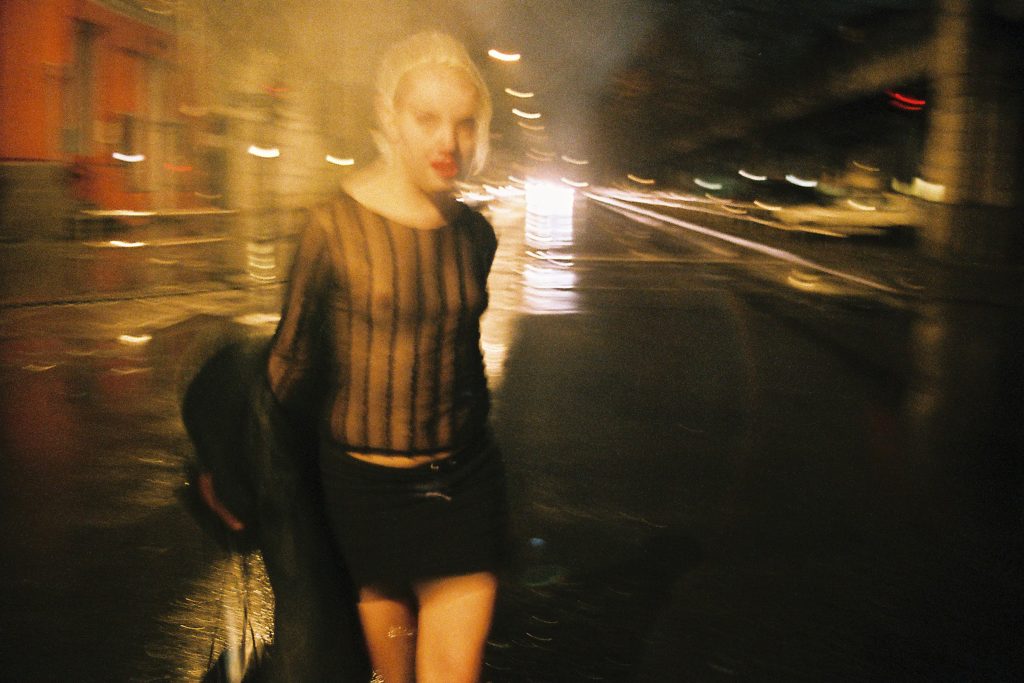
“I can’t say I’m a woman, but I’m not a man either. I am something… – a creature of God,
but a crooked creature of God. God didn’t pay attention when I was born.”
That’s what Julia says about herself. She never accepted authorities other than this God
who was wrong.
For more than ten years, photographer and filmmaker J. Jackie Baier accompanied trans*
woman Julia through her life as a sex worker, outlaw and non-conformist. Julia comes from
Lithuania and speaks an archaic German that has not been used in this country since the
early 19th century. She graduated from art school in Klaipéda and earns her living as a
whore on the streets of Berlin and in dingy sex cinemas.
An authentic portrait of an extraordinary woman.
The Secret Love Life of The Urban Leopard
Director: Pina Brutal
Producers: Pina Brutal, Silvia Procopio
Year: 2019
Country: Germany
Running time: 35′
Languages: English
Subtitles: English
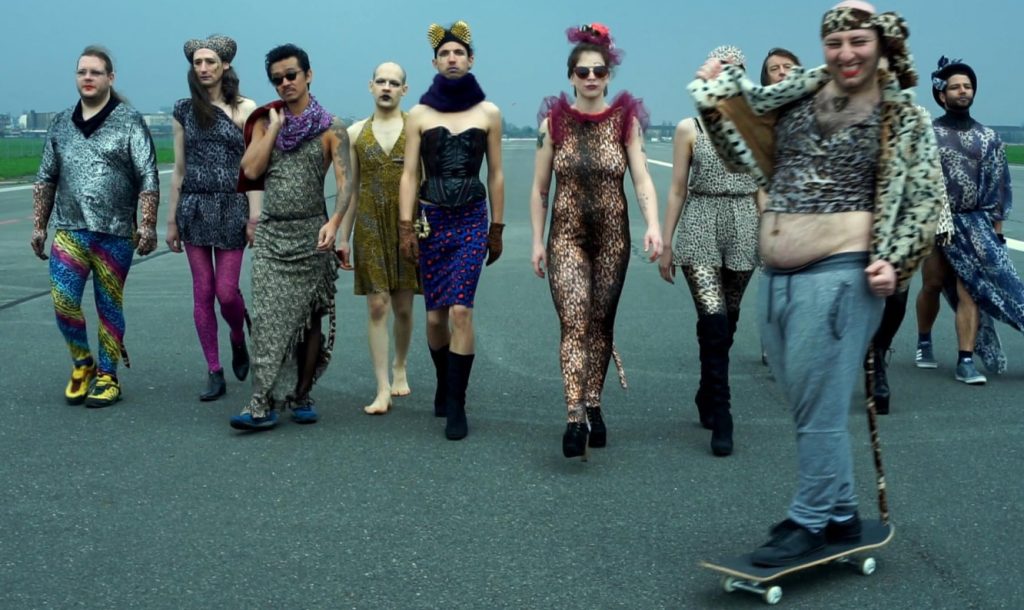
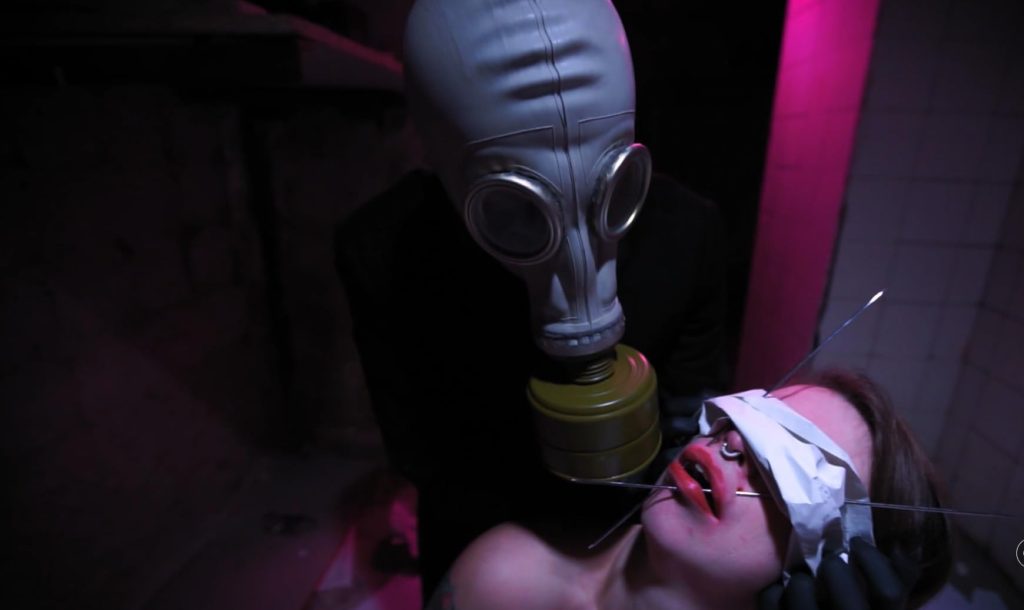
Did you know that a mysterious creature is said to be living amid Berlin? A creature that covers
itself in leopard print and accessories, and refuses to fit in. A creature that loves and lives, f*cks
and eats, creates, survives, cries and screams.
They are The Urban Leopards of Berlin.
This mockumentary about their life will introduce you to their habits, their way of living, and most
importantly, to their beauty and uniqueness.
Enjoy the movie that made people laugh in Berlin but faint in Rome.
Although not that appreciated in the international Festival circuit, for certain content, yet an instant
Berlin classic, The Secret Love of The Urban Leopard is a wild ride into the heart of the Berlin
underground queer world.
The Younger
Director: Etsen Chen
Producer: Joyce Chou
Year: 2015
Country: Taiwan
Running time: 44′
Languages: Mandarin
Subtitles: English, Chinese
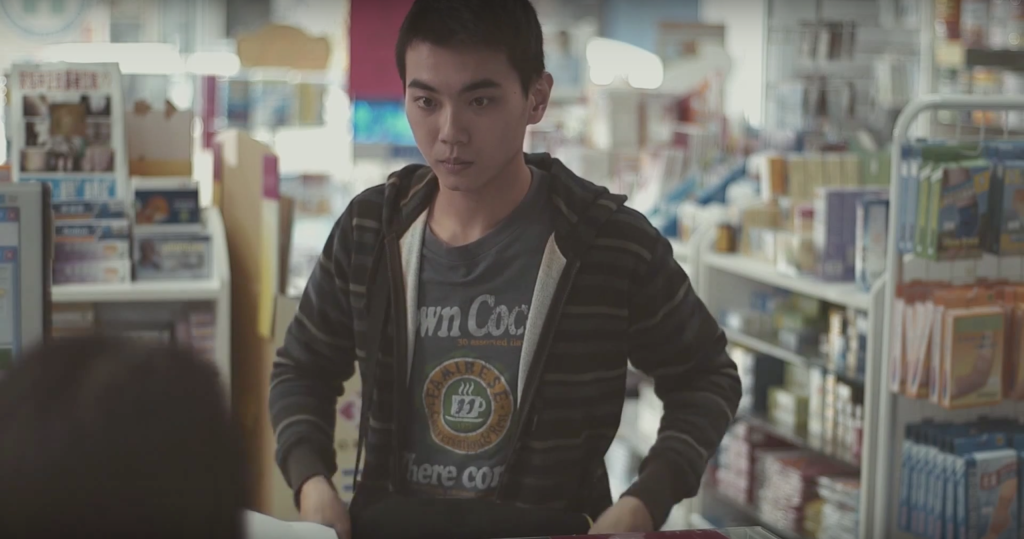

Hao Zhi Chen (19) lives alone with his Grandmother who has Alzheimers and has suffered from a stroke. In order to pay the bills and his grandmother’s medical expenses, he goes to work in a gay massage parlor. At first, it was just work…but Hao Zhi soon finds that he is attracted to some of his clientele, and gets pulled into a world where he loses control of things he thought he could handle.
TENCHA REINA
Director, producer: Maruja Bustamante
Year: 2023
Country: Argentina
Running time: 70 minutes
Languages: Spanish
Subtitles: English
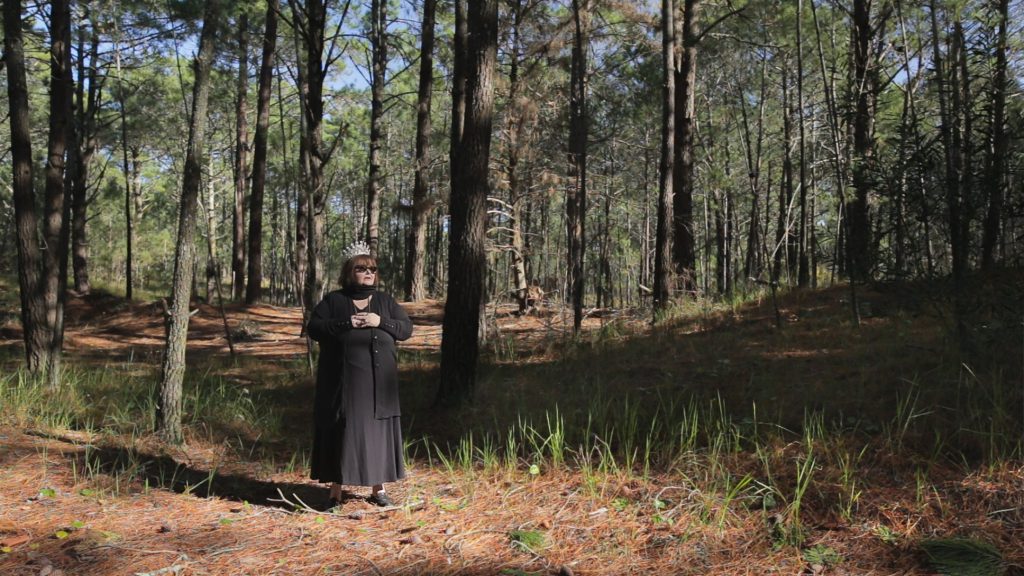
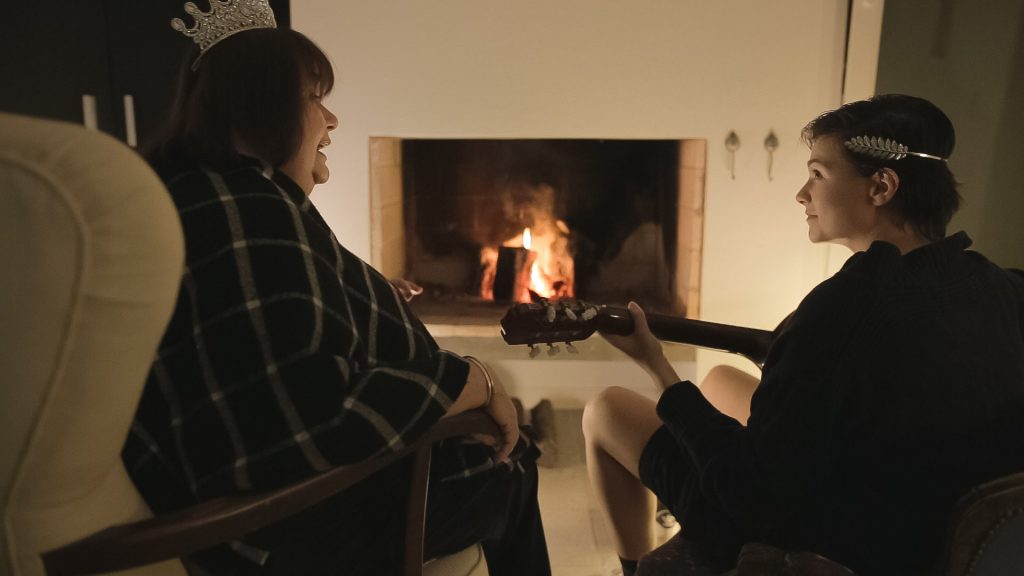
Tencha Reina is an autobiographical account of Tencha de Sagastizabal: a psychoanalyst, an estate in Carmelo Arden Quin’s work, an actress, a shaman, and a fat woman. The film is a sensual, magical, and iridescent dreamlike portrait. A hybrid that mutates into a fable. A queer fairy tale intertwined with documentary.
Tencha lives her life like every other day. She is a woman with a son searching for his identity, a daughter who is an artist, and a husband who bakes pastry. For some time now, a question has been swirling around in her head: What is beauty? Is there beauty for her in this world? That’s why she decides to start living with a crown and also decides to crown her family, creating an intimate monarchy where the internal rules are set by those who approach her, and the world can be the most perfect place to live.
What happens when hegemony doesn’t reign on screen? What happens if the screen becomes fat? Tencha Reina canonizes other ways of seeing the world. Or at least it calls into question the supremacy of subtlety.
Desaprender a Dormir (Unlearning to Sleep)
Director, Producer: Gustavo Vinagre
Year: 2020
Country: Brazil
Running time: 94 minutes
Languages: Portuguese
Subtitles: English
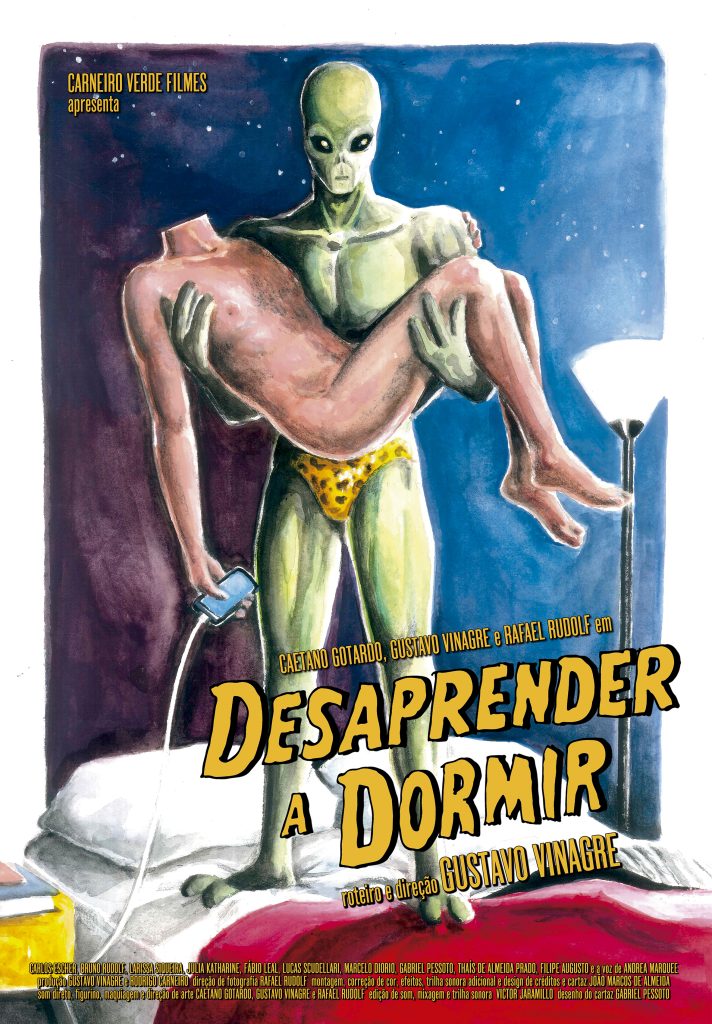
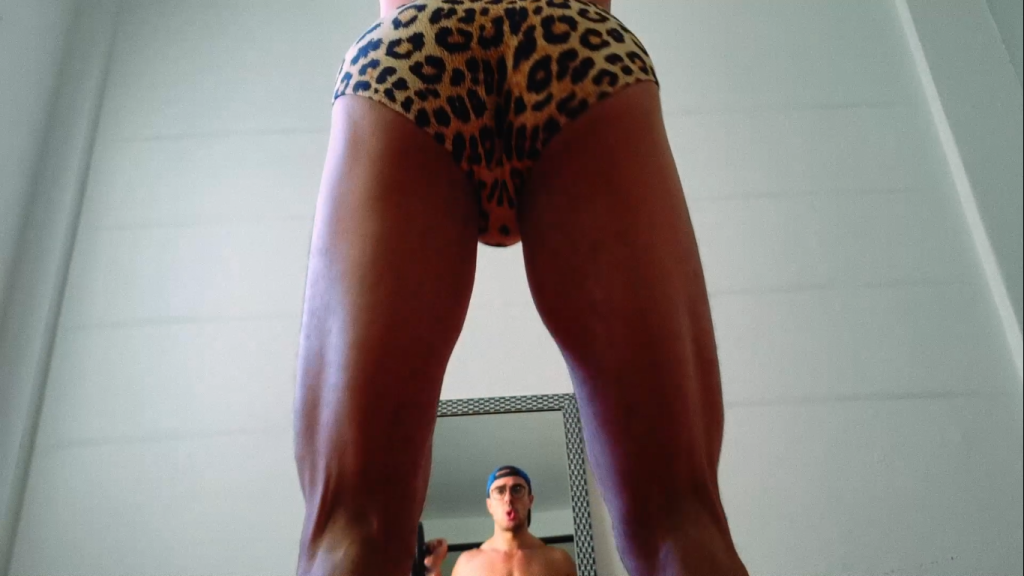
Flávio loses his sexual appetite editing porn videos. José, his husband, is trying to create
an equation that determines when humans will colonize Mars. Flávio is focused on a
more internal journey, and José is trying to find ways to bring Flávio’s lust back.
Meanwhile, Hypnos, god of sleep and YouTuber, tries to give people back the art of rest.
Janine zieht aufs Land
Director, Producer: Jan Eilhardt
Year: 2025
Country: Germany
Running time: 74
Language: German
Subtitles: English
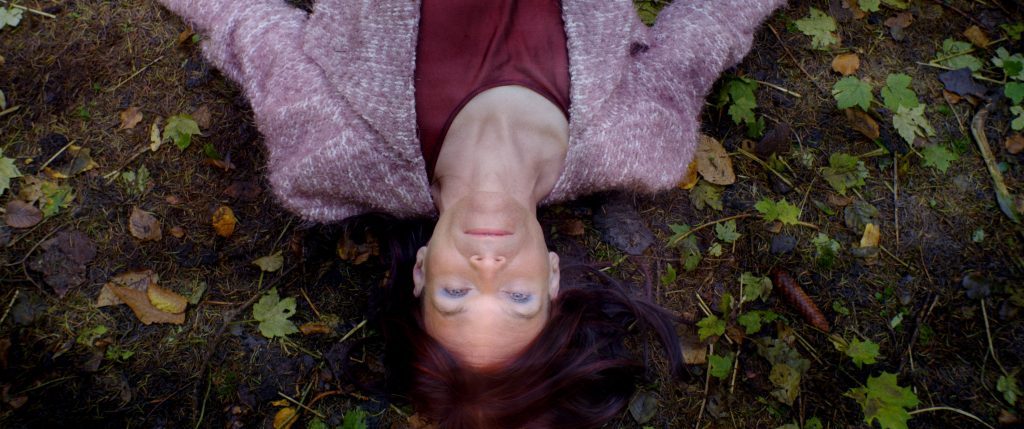
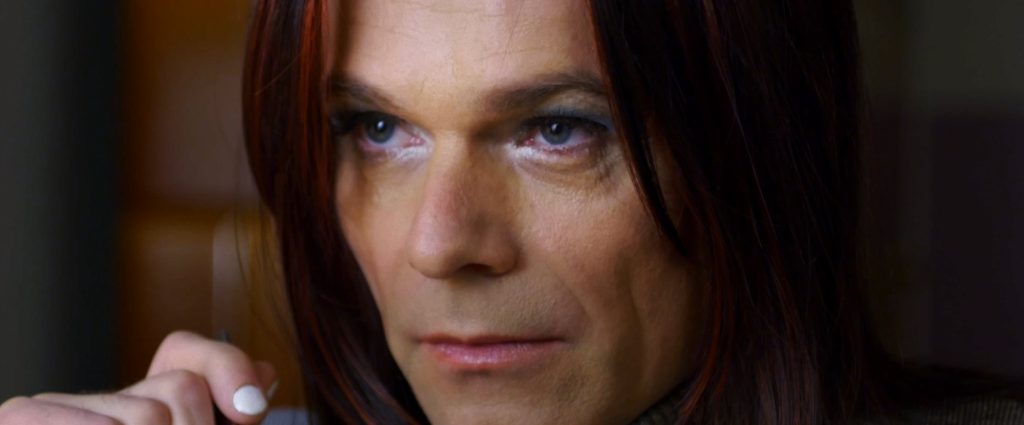
Her partner’s asthma forces Janine to move back to the country. As a queer person, she
leaves behind the safe space of the city and is confronted with the ghosts of her past in
her new home: insults, hostility, assaults. The glances of her neighbour Peter, who still
lives with his mother and looks after his disabled brother, awaken dark memories in
Janine yet pull her closer at the same time. A game of naive inappropriate acts, full of
sexual energy, then ensues between the two. As Janine and Peter grow closer and he
lets her see behind his front of toxic masculinity, his jealous brother takes drastic
measures to win back Peter.
Fetish
Director, Producer: Malga Kubiak
Year: 2025
Country: Sweden/Poland
Running time: 120
Language: Swedish, Polish and English
Subtitles: English
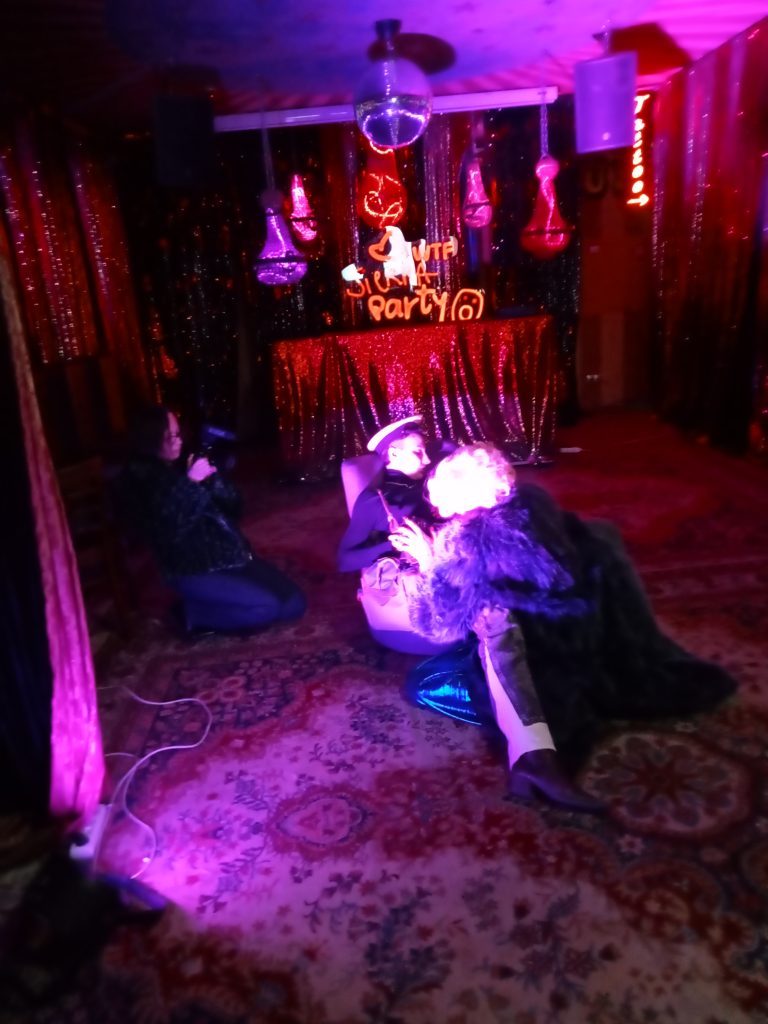
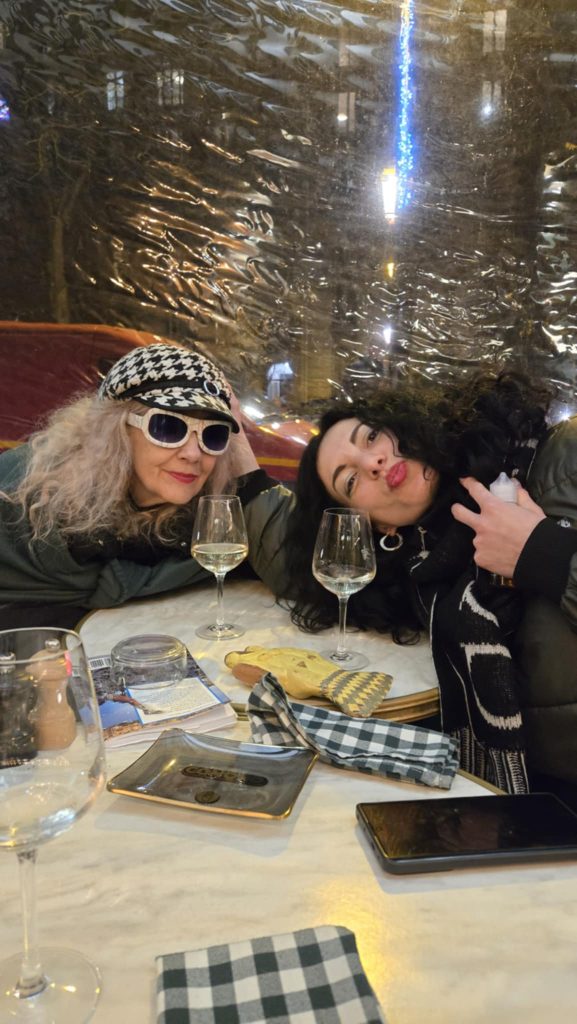
I was never able to write a synopsis. I always made the film. Preferably without a
manuscript. Preferably without a budget to have all the freedom to express myself with
my collaborators. These are AntiGonna, Aleksandra Kluczyk, Puszek, Pepe Le Puke and
Simona Kasprowicz. Fetish is happening now in the 21st century, the time of wars, the
time of collapse, the time of hyenas. We are mammals when we defend our territory; we
are deadly, or not… FETISH by Malga Kubiak begins in the 20th century with memories of
Los Angeles. Some of us sell our bodies to survive, some of us are supreme at it, some
are beginners. All of us are actresses. Some certainly usurp the director role. Some of us
manage to survive. Puszek died in the middle of the movie, Artur Snitkus too. Mantas
Kvedarevicius (1976 – 2022) Lithuanian film director amused of porno tactics killed by
russian forces in Ukraine is the only one deadly priced. FETISH by Malga Kubiak is a
tribute to Mantas Kvedarevicius.
BEHIND THE OPEN DOOR
Director, Producer: Todd Verow
Year: 2025
Country: USA
Running time: 70′
Language: English
Subtitles: English
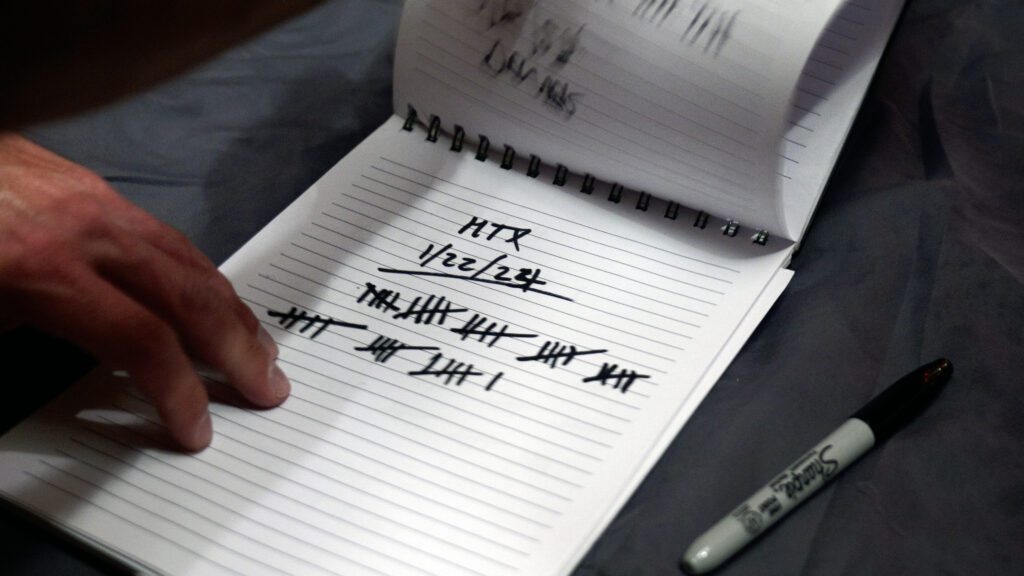
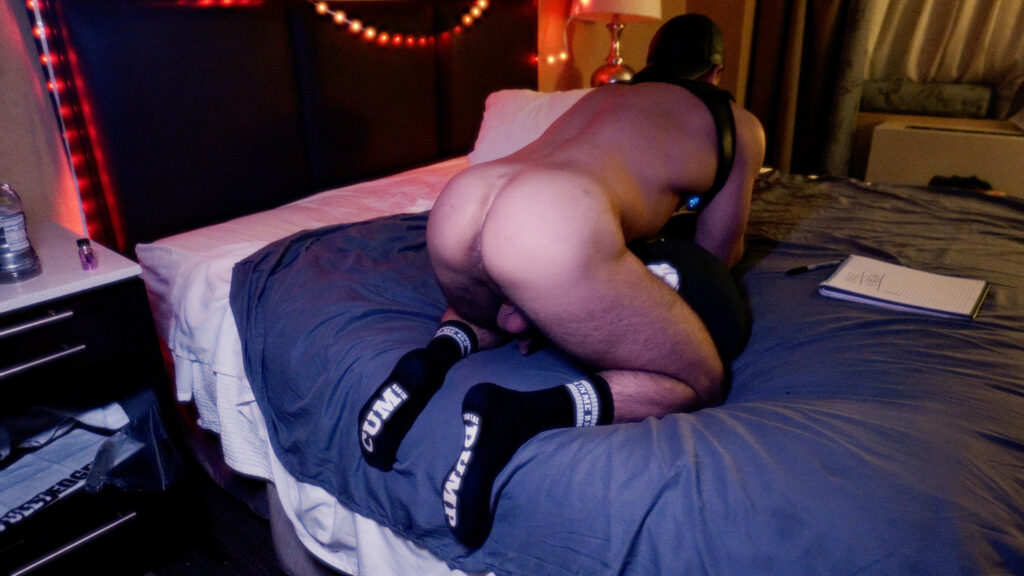
A no-holds-barred, fly-on-the-wall documentary about the life of a cum dump. As Corey Hudsonn (not his real name) gets ready for an all-night cum dump session, he talks about how he started on his sexual journey and the philosophy of cum dumping. As the evening progresses, and he takes load after load from anonymous men, Corey offers advice on how to set up a cum dump session and his thoughts on the exploding cum dump culture.
“In a loose follow-up to his 2011 film Bottom X, also shown at PFFB, Todd Verow documents a cum dump during a night in which he lets more than 20 men fuck and fill him with cum in a hotel room. With an unflinching, observational gaze, the camera captures the action while Corey – whose videos are also available online -narrates off-screen, sharing how he prepares for his sessions in different cities, offering practical advice, and reflecting on his life as a c*m dump. Candid, unapologetic, and surprisingly informative, the film offers insight into a growing cum dump community.” – Kristian Petersen PFFB Catalog
Avant-Drag!
Director: Fil ieropoulos
Year: 2024
Country: Greece
Running time: 92′
Language: Greek, Albanian, Russian, English
Subtitles: English
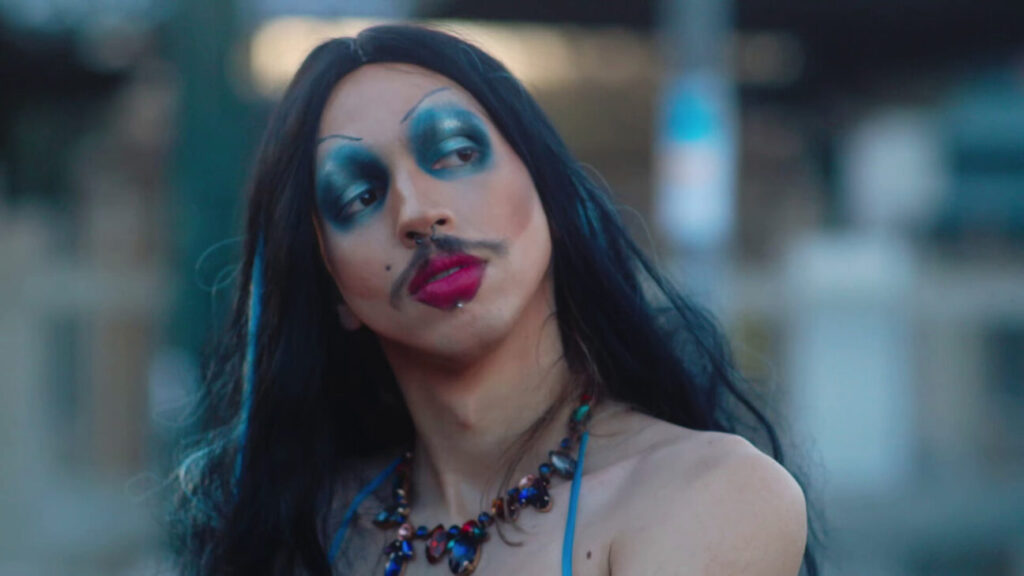
In the poetic documentary Avant-Drag!, we follow the lives of ten Athens-based drag performers as they create their own temporary worlds as a refuge against a hostile reality. By watching closely the lives and modes of expression of the protagonists, we get in touch with a new scene that has been blossoming in recent years and discover through them how the art of drag can transform reality and create safe spaces for people marginalised by Greek society. Avant-Drag! breaks the conventions of queer/identity documentaries that at times take a journalistic/cinematically minimal and distant, ‘objective’ approach, choosing to create instead a surreal collage in which narratives and images are built alongside the very subjects presented. A community speaks for itself without the mediation of an outsider’s gaze.